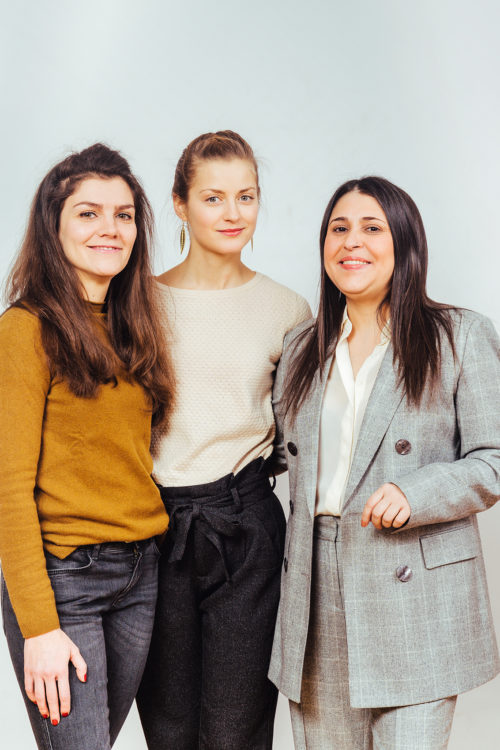
The plot of Don Giovanni resembles the scandals that #metoo has brought to light. Today, we can no longer let pass the narcissistic justifications of the so-called seducer – for deception, rape and murder. But how can we negotiate the myth without reproducing male dominance or, in accordance with cancel culture, disposing of people ostracized by the media and of uncomfortable topics?
After Don Giovanni has been found guilty in the first act through a class action initiated by Donna Anna, the courtroom degenerates into a lawless space. Here he goes through grotesque episodes of punishment. Alienated versions of his victims push him to his mental and physical limits. Around the epicentre of the Don Giovanni character, the regulated dramaturgy of the score also disintegrates. It finds a new order in which ruptures are exposed, repetitions impose themselves and a female author raises her voice: George Sand, a powerful critic of the Don Juan myth who is underrepresented in cultural memory. A statuary tribunal of the patroness of justice, Justitia, confronts Don Giovanni with Sand’s inescapable question: ‘Who are you? And why can’t you be loved without suffering?’
Director: Anika Rutkofsky studied musicology and French in Basel and dramaturgy at the HMT Leipzig. She is engaged as an assistant director at the Stuttgart State Opera, where her productions of Spielraum Oper: Kasino, Herr Blumenkohl gibt sich die Ehre and Trouble in Tahiti were put on stage. She holds a scholarship of the Akademie Musiktheater heute.
Stage & Costume Design: Eleni Konstantatou studied graphic design and photography in London and Athens and Stage Design and Scenic Space in Berlin. She is a set design supervisor at the Athens Opera and has worked for Deutsche Oper Berlin, Salzburg Festival, Stuttgart State Opera, Baden-Baden Easter Festival, Halle Opera, and Darmstadt State Theatre, among others.
Dramaturgy: Johanna Danhauser completed her Bachelor’s degree in Dramaturgy at HMT Leipzig and her Master’s degree in Music and Performance at the University of Bayreuth. She worked as a dramaturg at the Stuttgart Opera and the Konzerttheater Bern. Since 2021 she has been working in the curatorial team of the Ruhrtriennale as dramaturg for music and cross-disciplinary projects.
Deutsche Oper Berlin:
Don Giovanni: Tyler Zimmerman
Leporello / Don Giovanni 2: Byung Gil Kim
Zerlina: Alexandra Hutton
Donna Elvira: Flurina Stucki
Répétiteur: John Parr
Sound Design: Günter Schlienz
Musical advice: Stefan Schreiber
Translation of the ‘Lélia’ text: Anika Rutkofsky, Johanna Danhauser
Voices of Justice: Lauryna Bendžiūnaitė, Stine Marie Fischer
Spoken text: Josefin Feiler, Stine Marie Fischer, Teresa Smolnik
Statues’ choir: Noriko Kuniyoshi, Elisabeth von Stritzky, Shan Shan Wang, Christina Otey, Pia Liebhäuser, Jie Zhang
Stage Manager: Roland Fischer
Photos (c) Susanne Hassler